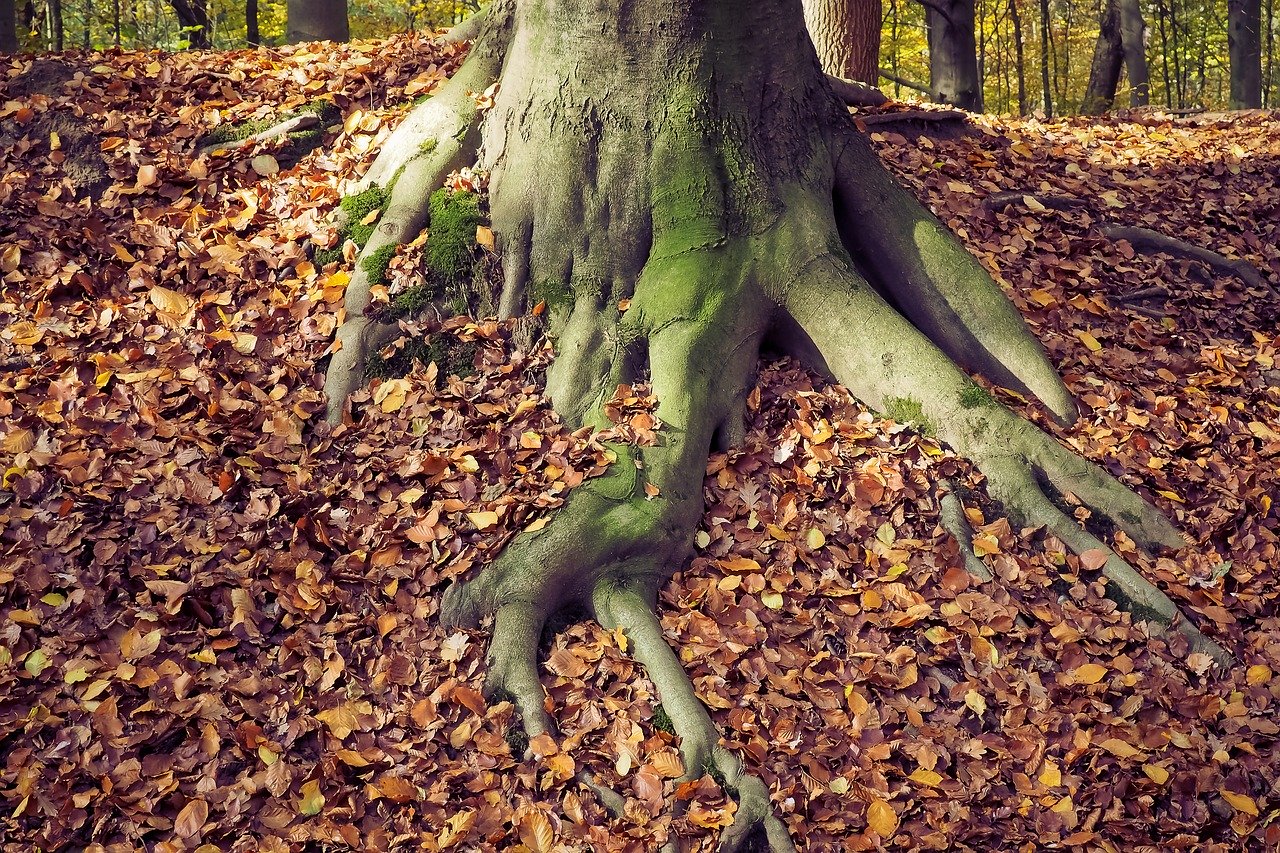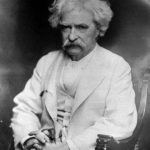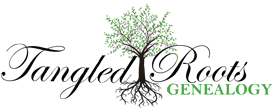

Why waste your money looking up your family tree? Just go into politics, and your opponents will do it for you.
The business of tracing your family tree used to involve driving to the county and town offices, libraries, churches, cemeteries, and state offices to dig through piles of old books and documents. In 1932 Frank Allaben and Mabel Washburn wrote a guide to genealogy titled How to Trace and Record Your Own Ancestry, which provides a dizzying step by step guide on how to trace your ancestors.
“Besides work at County offices … one should visit the State Capital and consult general records of the State, such as Land Grants and military records …. It is advisable to visit the State Library, always, and there one can easily learn at what offices in the State Capital may be found other general records which should be consulted. … The actual place where your ancestors lived should be visited, if possible, and endeavor made there to find and examine the records of the Church which they attended. … In New England, there will be found, in the Town Clerks’ offices of the various Towns, Town Records.”[2]
Mark Twain famously said, “Why waste your money looking up your family tree? Just go into politics, and your opponents will do it for you.” While that may be true for someone going into politics, the rest of us interested in our family history have to do the legwork ourselves. Though we are not alone in this desire to connect to our past. It’s estimated that genealogy products and services are likely to be valued over $3 billion in 2019. With the popularity of DNA testing and TV shows such as Who Do You Think You Are and Finding Your Roots, the genealogy market looks to continue rising. The projected growth is 11.4% through 2024.[1]
Nowadays we have the advantage of the internet, which has made the process of researching our family history much more accessible. However, a true researcher will still trudge to those brick and mortar places to find hidden gems because, in truth, only a fraction of historical resources have been digitized. But that is topic for a separate blog post.
Companies like Ancestry and MyHeritage have invested considerable sums in updating and streamlining the process of  researching and bringing genealogical resources to armchair family historians everywhere. In other words, tracing dead people is a big money business and not cheap to do. It’s estimated that the average armchair family researcher will spend between $1800 to $18,000 per year according to consulting firm Global Industry Analysts.
researching and bringing genealogical resources to armchair family historians everywhere. In other words, tracing dead people is a big money business and not cheap to do. It’s estimated that the average armchair family researcher will spend between $1800 to $18,000 per year according to consulting firm Global Industry Analysts.
Why People Get Into Genealogy
Many families in the US have at least one family member who is actively researching their family’s ancestors. But why? What can it do for families or individuals? Why is it important?
Learning about family history can be truly eye-opening, both positive and negative. We’ll start with the good stuff and get to the negative later. Some of the positives are:
- Learning about your family history can lead to a positive effect on younger generations by providing them with some identity and connection to where they came from
- Genealogical research can provide valuable insight into your family’s medical history
- Once you learn about them, you can preserve family traditions and culture
- Your research can identify distant family members that you can connect with to learn even more from and about
Younger generations can benefit from your genealogical research by gaining insight into where they, and their family, came from. It can also help provide vlauable perspective on family dynamics. For example, perhaps there’s a strained relationship with a seemingly difficult or troubled family member. Through research into the family, it’s discovered that the family member spent their formative years in an orphanage, where they weren’t shown much love and didn’t have any real support. This discovery, perhaps, helps others empathize and understand with this individual. Knowing your ancestors, understanding the difficulties and hardships they faced and endured can give you a better appreciation for who they are and what they are going through.
Children who learn that their ancestors came from different countries are more likely to develop a connection to others that they meet from that same country. Also, children who can identify an ancestor’s relationship or involvement in a historical event are more likely to comprehend and learn about history. Children who learn about their family history often develop a sense of pride in their past, establish a more robust connection to their elders, and are more apt to teach their own children about the family history.
For adults, researching family history can turn the average person into Sherlock Holmes. It’s the quest to find that elusive ancestor, that lost document, or another piece to the puzzle (which anyone in genealogy can tell you is never done). When you do find that hidden or lost gem, you will do the genealogist happy dance and post it all over social media. It’s a sense of satisfaction and discovery.
Learning about our ancestors can provide us with a sense of connection. Perhaps your Grandmother spoke German, and you often wondered what life was like for her, or where was she born, and when did she immigrate to the US. Through genealogy, you can now find the immigration records of your Grandmother, her birth records in Germany, which reveal what town she was born in and the names of her parents. You’ve just discovered more about her and learned who your Great Grandparents were. Having this information at your fingertips can open up new opportunities to travel, meet new people, and join groups.
Finding My 5th Great Grandfather
People who research and have knowledge about their ancestors and where they come from tend to have a real sense of pride in what their ancestors helped build or discover. Recently, I found a tidbit of information about my fifth great grandfather, Antonio Clemente Felix Villavicencio. He was a member of the 44 original settlers and four soldiers who found the Pueblo de Nuestra Senora la Reina de Los Angeles in 1781, which is now the present-day city of Los Angeles, California.
Antonio was born in 1751 and was a Criollo. A Criollo is Latin Americans who are of full or near full Spanish descent. Antonio and his wife Maria arrived at the San Gabriel Mission on 22 July 1781, where their daughter Maria Geronima was the FIRST child born of the Los Angeles settlers. Imagine that!!! Not only did I learn that my ancestor was among those men and women who founded Los Angeles, but I also learned what a Criollo is. (I’ll take my key to the city now PLEASE!)
In addition to learning about your ancestor’s past, there are practical and essential aspects to learning more about your ancestors, your health. We know that some health factors, such as heart disease, are hereditary. But do you know who in your family tree had heart issues or passed from heart disease? Through genealogy research, you can now find death records that list the cause of death, which can make you and your family more informed about your health and perhaps encourage you and other family members to get tested.
Family Medical History
When I was pregnant with my first son, I was diagnosed with Rh Factor. However, my mother didn’t have it, so I started researching my Grandmothers death records and medical information. Rh Factor was discovered in 1940, my father born in 1941, my Grandmother was never able to carry another baby to term, she had at least 6 miscarriages after my father was born. It’s likely that because Rh Factor was so new in its discovery that she didn’t know about it. But with my research, I now know that I inherited this from my Grandmother and I can now pass this information to my children so they can be tested.
In the past decades, genealogy research has become a means for children and parents of adoption to locate their birth parents or children. For children of adoption, the need and desire to find a connection to their birth families is especially keen. Lawyers use professional genealogists to locate heirs listed on wills or inheritance.
Lineage Societies
Lineage societies such as Daughters of the American Revolution and General Society of Mayflower Descendants use genealogy to prove facts for each generation back to the qualifying ancestor. Many people find joining lineage societies a way to connect to like-mind people who have an interest in researching their family histories and a connection to that historical place or event.
The Dark Side of Genealogy
If you cannot get rid of the family skeleton, you may as well make it dance.
But let’s be honest, sometimes tiptoeing through your family graveyard can dig up skeletons and long-buried secrets. This can be one of the pitfalls of researching your family history and must be handled cautiously and with sensitivity.
Honestly, I actually embrace my skeletons and find it fascinating to learn about them. For me, it makes my ancestors relatable; human. But not everyone feels the same. Some will feel shame or sorrow, such as a family finding out they owned slaves (ask Ben Affleck).
With the advent of DNA testing becoming so popular, many people have discovered siblings they never knew about, or that the person they believe is their parent isn’t actually their biological parent. While researching, you may find a felon, a bigamist, children born out of wedlock, ancestors in insane asylums, deserters from the military, or perhaps that some birth dates aren’t quite 9 months after the parent’s marriage dates, perhaps by 3 months (I have a few of those).
As a genealogist, I have friends and family say to me all the time, “What does it matter, they’re all dead!” For me and many others, it’s because they made me who I am. Without them, I would not be here. They are part of me, part of my genetic makeup.
Our ancestors deserve to be remembered and to continue to be part of our lives. Our children and grandchildren need to hear about their ancestors, where they came from and what they contributed or sacrificed to make it possible for their generation to be here today.
Works Cited
[1] Fact.MR. “US$ 3 Bn Genealogy Products and Services Market Driven by Surging Demand for DNA Testing: Fact.MR Study.” GlobeNewswire News Room, “GlobeNewswire,” 4 Mar. 2019, https://www.globenewswire.com/news-release/2019/03/04/1746055/0/en/US-3-Bn-Genealogy-Products-and-Services-Market-Driven-by-Surging-Demand-for-DNA-Testing-Fact-MR-Study.html.
[2] Allaben, Frank and Washburn, Mabel, How to Trace and Record Your Own Ancestry (New York: National Historical Company, 1932), 81–82 Google Scholar.


